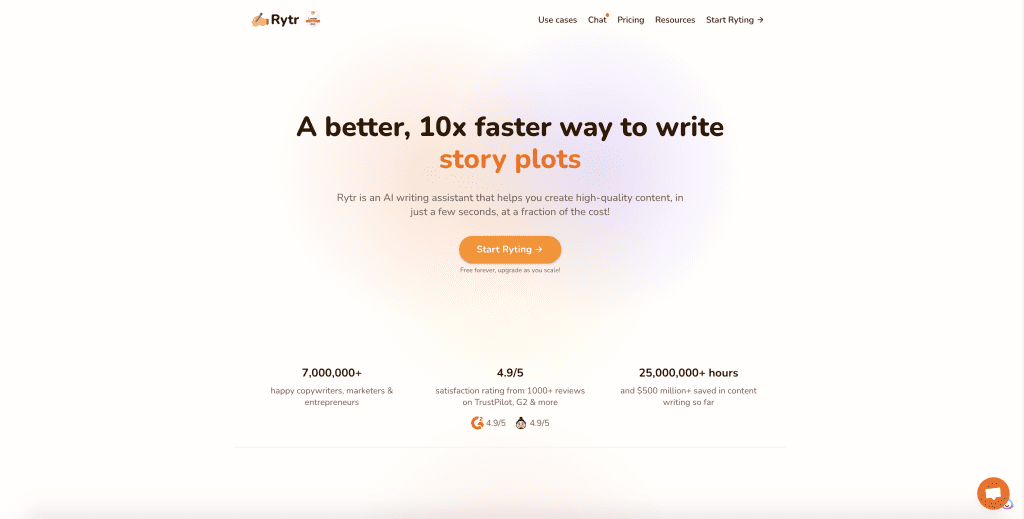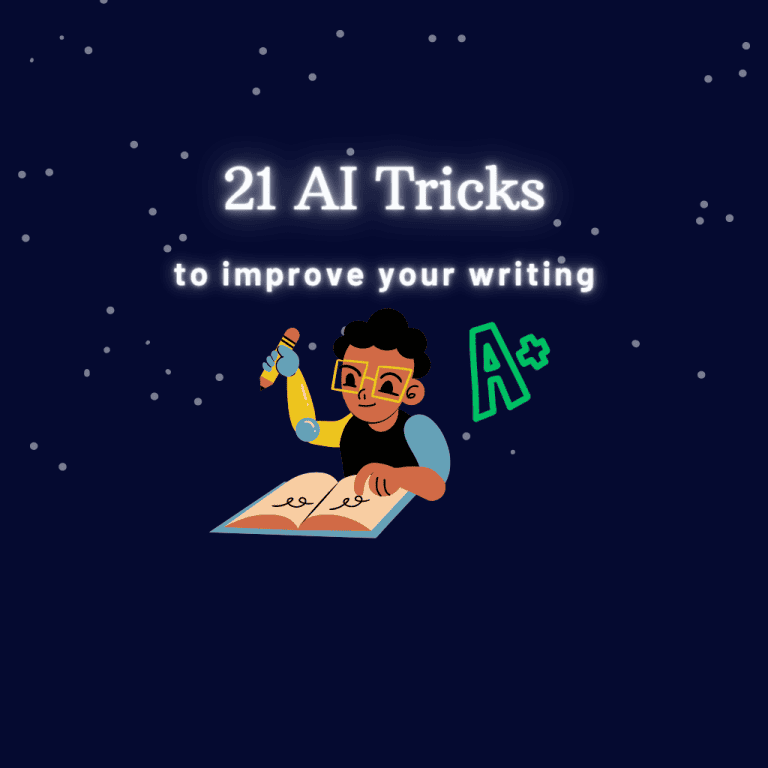Pros and Cons of AI Writing Tools – A Closer Look 2023
What is Artificial Intelligence (AI)?

Artificial Intelligence (AI) refers to the creation of intelligent machines that can function and think like humans.
This technology learns and adapts through algorithms and data.
AI is used in healthcare, finance, marketing, and entertainment, making tasks easier and more efficient.
Despite concerns, AI is an exciting field that continues to transform technology.
Artificial Intelligence for Writing
Artificial Intelligence (AI) is revolutionizing the way we write, with advanced algorithms and natural language processing.
AI writing assistants, powered by AI-generated content, are increasingly popular across industries.
These tools generate text, detect errors, and offer style suggestions. The biggest advantage of AI writing is saving time and effort.
Writers produce more accurate and consistent content, reducing the need for extensive editing and proofreading.
As AI continues to improve, its role in the writing world will undoubtedly grow.
The Rise of AI Content Generation
AI content generation has been on the rise in recent years, revolutionizing the way we produce content for various platforms.
With the help of machine learning algorithms, AI tools can generate content that is on par with human-written content, in a fraction of the time and cost.
From writing articles to creating visual designs, AI has proven to be a game-changer in content creation, complementing the work of human writers.
As technology continues to advance, we can expect to see more AI-powered tools for content creation that not only save time and money but also improve the quality of AI-generated content produced.
What are AI Writing Tools
AI Writing Tools are artificially intelligent programs or software designed to help writers create better content.
With these tools, writers can create content in a more efficient and effective way.
They can generate new ideas, correct spelling and grammar errors, and even provide suggestions for improving overall readability.
These tools operate using natural language processing and machine learning algorithms, which enable them to learn and adapt to a writer’s needs over time.
AI Writing Tools are a powerful asset that can help writers save time and increase their productivity without sacrificing quality.
Pros of AI Writing Tools
AI writing tools are essential for writers worldwide. They improve efficiency, creativity, and the quality of writing. In this section, we will explore the specific advantages that AI tools bring to the table.
Time Efficiency:
AI writing tools generate content quickly, saving time for other tasks or enabling more content production.
Improved Productivity:
They help writers overcome writer’s block and generate ideas for increased productivity. Including help with grammar and spelling errors.
Consistency:
AI tools maintain consistent writing styles and tones, reinforcing brand identity.
Language Support:
They can help businesses reach a wider audience by enabling writing in multiple languages
Cons of AI Writing Tools
AI has revolutionized content creation in various sectors. In this section, we will explore the drawbacks of some AI writing tools.
While these AI tools offer benefits such as time-saving, increased productivity, consistent writing, and language support, they do have limitations that should be addressed.
Lack of Creativity:
AI tools may lack the human touch and creativity required for emotionally nuanced writing.
Limited Context Understanding:
They may struggle with complex contexts, leading to inaccuracies or inappropriate content.
Over-Reliance Risks:
Relying solely on AI tools can hinder originality and result in a generic approach to content creation.
Initial Cost:
AI tools can be expensive, limiting access for small businesses.
AI writing tools are beneficial, but they’re not perfect
AI writing tools have undoubtedly made generating content easier and more efficient.
These AI tools can offer suggestions for phrasing, and grammar corrections, and even automatically generate entire sentences. However, like any tool, AI writing programs have their limitations.
One issue is that they may not always fully capture the tone and style of the writer’s voice, leading to the output feeling a bit robotic or lacking in personality.
Additionally, some programs may struggle with naturally weaving together ideas in a cohesive way.
Overall, AI writing tools should be seen as a helpful supplement to the writing process, but not a replacement for the human touch.
Quality concerns and plagiarism

As AI writing tools become more widespread, there are concerns about the quality of the content they produce and the potential for plagiarism when using AI writing tools.
While these AI content tools can boost productivity, there’s a risk that the output may lack the specificity and nuance of human-written content.
Moreover, the algorithms used by these AI content tools may draw from a limited pool of sources, unintentionally replicating existing material.
It’s crucial for users of AI tools to exercise caution and ensure that the resulting content, generated using AI writing tools, meets the required standards for quality and originality.
What is the best AI Writing Tool?
Choosing the best AI writing tool depends on factors like specific needs, budget, and customization.
Popular options for AI writing tools include Jasper.ai, Writesonic, and Rytr.ai, which excel in creative content generation.
Grammarly is known for real-time grammar and style suggestions, while Copy.ai offers robust templates for different needs. Ultimately, the “best” tool is subjective and should be based on individual or company requirements when considering AI writing tools.
It’s also important to consider the role of human intelligence in the content creation process when using AI writing tools.
Jasper.ai

Jasper.ai is a leading AI writing tool known for its exceptional content generation capabilities.
It efficiently creates high-quality content, using advanced algorithms, favoured by businesses streamlining their content creation process.
Jasper.ai produces well-structured and relevant content across various niches, complementing the expertise of a human writer.
Writesonic

Writesonic is a popular AI writing tool, recognized for its user-friendly interface and versatile applications.
As an AI tool, it offers various writing formats and templates, making it adaptable to different content needs.
This AI tool is preferred by businesses and content creators seeking a solution that balances ease of use with powerful content generation capabilities.
Rytr.ai

Rytr.ai is known for its natural language generation capabilities, producing content that closely resembles human-written text and machine-written content.
It is highly praised for generating engaging and authentic content across various industries.
Businesses choose it to maintain a personal touch in their content while benefiting from AI-driven writing efficiency.
Want to learn more about Rytr.ai? Click here for my in-depth guide about this fantastic tool!
Conclusion
AI writing tools offer clear advantages over traditional methods for generating AI-written content.
They provide a faster and more efficient way to generate content, optimizing your workflow.
These tools assist in generating ideas, organizing thoughts, and suggesting improvements to your writing style.
However, it’s important to consider potential drawbacks.
Relying too heavily on automation can sacrifice creativity and originality, making content creation time-consuming.
Striking a balance between leveraging AI benefits and maintaining your unique voice is crucial.
The decision to incorporate AI writing tools for search engines depends on your needs and goals.
Some prioritize speed and convenience, while others prefer a traditional approach emphasizing human touch, individual expression, creative ideas, and optimizing content for search engines.
Related Articles:
- How To Use AI Writing Tools 2023 – A Complete Guide
- What are AI writing tools? A Complete Guide
- Best AI Writing Tools of 2023: The AI Writing Tools You Can’t Miss!
- Conch AI Review 2023: The Powerful AI Writing Assistant Changing Content Creation
- 21 AI Writing Tricks to Enhance Essay Engagement in 2023






